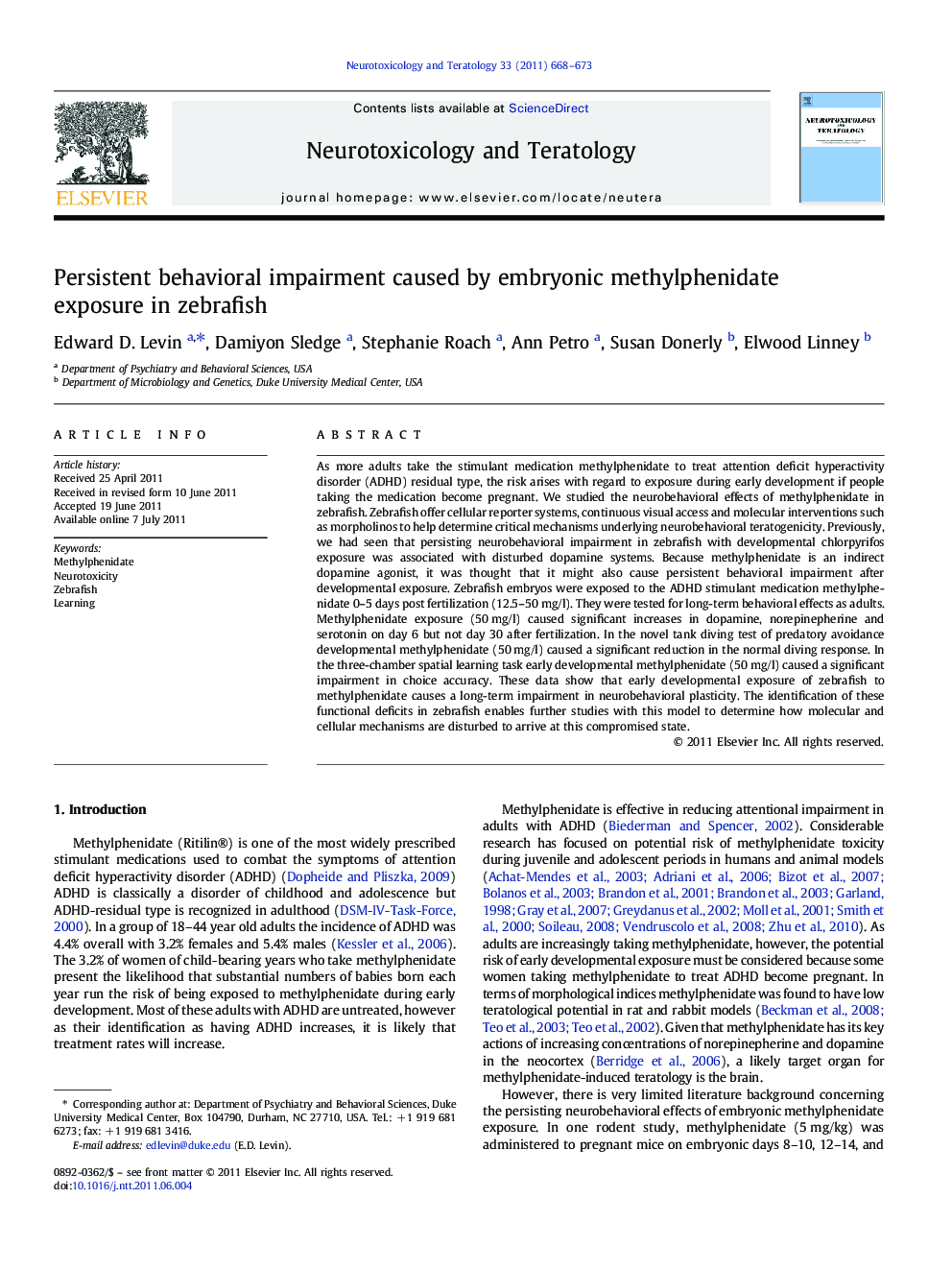| کد مقاله | کد نشریه | سال انتشار | مقاله انگلیسی | نسخه تمام متن |
|---|---|---|---|---|
| 2591603 | 1131818 | 2011 | 6 صفحه PDF | دانلود رایگان |

As more adults take the stimulant medication methylphenidate to treat attention deficit hyperactivity disorder (ADHD) residual type, the risk arises with regard to exposure during early development if people taking the medication become pregnant. We studied the neurobehavioral effects of methylphenidate in zebrafish. Zebrafish offer cellular reporter systems, continuous visual access and molecular interventions such as morpholinos to help determine critical mechanisms underlying neurobehavioral teratogenicity. Previously, we had seen that persisting neurobehavioral impairment in zebrafish with developmental chlorpyrifos exposure was associated with disturbed dopamine systems. Because methylphenidate is an indirect dopamine agonist, it was thought that it might also cause persistent behavioral impairment after developmental exposure. Zebrafish embryos were exposed to the ADHD stimulant medication methylphenidate 0–5 days post fertilization (12.5–50 mg/l). They were tested for long-term behavioral effects as adults. Methylphenidate exposure (50 mg/l) caused significant increases in dopamine, norepinepherine and serotonin on day 6 but not day 30 after fertilization. In the novel tank diving test of predatory avoidance developmental methylphenidate (50 mg/l) caused a significant reduction in the normal diving response. In the three-chamber spatial learning task early developmental methylphenidate (50 mg/l) caused a significant impairment in choice accuracy. These data show that early developmental exposure of zebrafish to methylphenidate causes a long-term impairment in neurobehavioral plasticity. The identification of these functional deficits in zebrafish enables further studies with this model to determine how molecular and cellular mechanisms are disturbed to arrive at this compromised state.
► Increasing adults use of methylphenidate raises the risk of exposure in pregnancy.
► Embryonic methylphenidate exposure in zebrafish caused a transient increase in dopamine, norepinepherine and serotonin.
► Embryonic methylphenidate exposure in zebrafish caused a long-term impairment in the predatory avoidance response.
► Embryonic methylphenidate exposure in zebrafish caused a long-term impairment in spatial learning.
Journal: Neurotoxicology and Teratology - Volume 33, Issue 6, November–December 2011, Pages 668–673